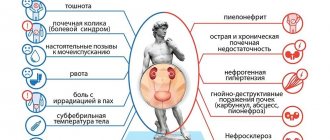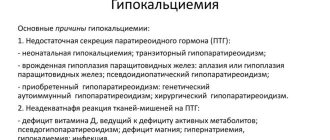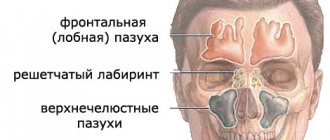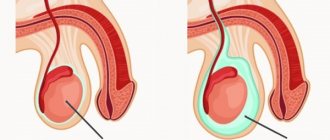What speech disorders are most common in adults?
Speech problems do not only occur in children who are just learning to speak. For various reasons, adults who have been able to speak completely normally for decades may begin to lose their speech - in our clinic we are engaged in solving such problems.
Since adults have been talking for many years, most often their problems are associated with injuries or diseases that affect the brain, and with age the risk of developing such problems only increases. We treat aphasia and dysarthria - common speech disorders that arise precisely because of such situations.
Causes of slow speech in adults
Slow speech in adults may appear abruptly or develop gradually.
The causes of this condition are different: disorders of the functional state of the nervous system, brain injuries that appeared after a stroke or thrombosis, or malignant neoplasms.
In order to find out what to do and why your speech has slowed down, you need to consult a doctor. Only a specialist can recommend further examination and treatment for a patient with such a complaint.
Speech difficulties associated with slow speech
Head injury is one of the causes of slow speech in adults (photo: www.meduk.net.ua)
Speech difficulties come in many forms, including stuttering, dysarthria, voice problems and articulation difficulties. Accidents can damage the brain centers or muscles. Sometimes these pathologies correct themselves naturally, but often have long-lasting consequences. Some diseases can cause difficulty speaking due to degeneration of muscle and nerve cells.
Some adults have had speech problems since childhood, and speech difficulties become a problem as the person grows older. Patients describe this as a “speech impediment,” “speech problem,” or “pronunciation problem.”
Sometimes it can be difficult to change some speech difficulties that have been present since childhood, they are so built-in. The problem of slow speech often occurs due to problems and diseases of older people.
Brain injury that causes slow speech can be caused by a brain tumor, stroke, cerebral palsy, long-term use of certain medications, or degenerative diseases such as Parkinson's disease.
Why does slow speech occur in adults?
Speech impairment is a focal symptom. Speech impairment can occur either as aphasia or in a milder form – slow speech. Most often, a person has lesions in the cortex of the dominant hemisphere (in left-handed people - right).
A person loses the ability to partially or completely use speech to express his own thoughts and feelings. Another reason for the disorder of expressive speech while maintaining its understanding (dysarthria). This is a lesion of the cerebellum, basal ganglia.
As a result of disruption of these anatomical structures, flaccid or spastic paralysis of the speech apparatus may occur: tongue, pharynx, larynx, soft palate, muscles that lift the mandible, and respiratory muscles.
The articulation of consonants especially suffers, speech is slow and sometimes intermittent. At the same time, the voice is often weak and muffled.
Diseases that cause slow speech
The causes of speech impairment in adults are varied in their etiology and pathogenesis, with symptoms of a large number of diseases. Slow speech may develop gradually, but it can suddenly impair speech quality and make people feel uncomfortable.
Causes:
- Alzheimer's disease.
- Brain tumors.
- Dementia.
- Traumatic brain injury.
- Suffered a stroke.
- Transient ischemic attack (TIA).
- Alcohol intoxication.
- Diseases affecting neuromuscular structures, such as amyotrophic lateral sclerosis, cerebral palsy, multiple sclerosis.
- Head and neck surgery for cancer.
- Neurological disorders of the brain, such as Parkinson's disease in old people or Huntington's disease.
- The prostheses are poorly adapted.
- Side effects of drugs acting on the central nervous system, such as narcotic analgesics and anticonvulsants.
The brain is an extremely complex machine and consists of many different working areas. When one or more components stop working effectively, language and speech can often be affected. The severity of speech slowdown depends on the location of the process and the severity of the damage. Producing speech sounds can be very difficult, causing speech to slow down.
Doctor's advice. For any changes in speech, you need to contact a specialist to eliminate the cause, which may further threaten a person’s life
Stroke is the most common cause of slow speech
Stroke is a common cause of speech impairment in older people (photo: www.meddoc.com.ua)
Hemorrhagic and ischemic changes in blood vessels occur quickly, so symptoms often appear suddenly and without warning.
The main symptoms of a stroke are:
- Speech disorders. If the lower parts of the left frontal lobe and the lower parts of the parietal lobe are damaged, motor aphasia may occur in right-handed people. The patient is deprived of the ability to speak due to a violation of speech motor commands. These older people are quiet. They are reluctant to engage in conversation and answer in monosyllables.
- Headache – possibly with altered consciousness or vomiting.
- Numbness or inability to move parts of the face, arms, or legs—especially on one side of the body.
- Problems with walking – including dizziness and lack of coordination.
- The effects of a stroke are accompanied by permanent changes such as bladder or bowel problems, pain in the arms and legs, paralysis or weakness on one or both sides of the body.
Parkinson's disease is accompanied by speech disorders
The main symptoms of Parkinson's disease using a drawing (photo: www.nebolet.com.ua)
In Parkinson's disease, in addition to motor disorders, there are often pathological changes in the processes of phonation and articulation. The extent of speech changes depends on the clinical prevalence of rigidity, hypokinesia or tremors, and also depends on the ratio and severity of the latter.
Pathological changes in speech are often manifested by slower speech, decreased sonority of the voice, and aphonia (disappearance of the voice) may occur. A silent whisper (virtually inaudible) makes a person’s speech unintelligible, which is aggravated by monotony and the disappearance of intonations that are characteristic of spoken language.
In patients with hypokinesia, spontaneous speech activity decreases, their answers are laconic, and their speech is slow. With severe akinesia, speech becomes quiet, slurred, unexpressed and slow, so it becomes impossible to understand the patient. Only under the influence of great willpower can a person pronounce a word more loudly and clearly.
Pathological changes involve the articulatory muscles, which leads to dysarthria, which becomes the main cause of slow speech.
There are many ways you can use in everyday life to make your speech clearer and easier to understand.
| Order number | Helpful Tips: |
| 1 | Pause between breaths while speaking |
| 2 | Use lung and diaphragmatic breathing when speaking to give your voice more strength. |
| 3 | Use gestures and facial expressions to improve the information content of speech |
| 4 | Avoid communicating in noisy or distracting environments |
| 5 | If real problems arise, other forms of communication can be used, such as writing a message or using an electronic device to talk |
Important! If there are concerns about speech and voice, it is better to consult a qualified doctor or speech therapist to assess the degree and further correction
Source: https://SimptomyInfo.ru/simptomy/7-zamedlenie-rechi.html
Types of disorders in children
Slurred speech in a child is associated with various ailments. The main ones include:
- The external design of an utterance is a pronunciation disorder.
- Internal design – systemic speech disorder.
The child begins to use verbal and non-verbal speech from birth. This helps to assess the degree of his development - whether the child has good communication skills for his age.
In children, a speech defect can be considered the absence of any signs of development that are characteristic of a particular age:
- in the first month of life - screaming at any inconvenience;
- by the fourth month – the baby’s lack of reaction to contact with him;
- by the fifth - sixth month - does not pronounce individual combinations of sounds and does not follow objects pointed at by adults;
- by the seventh month – does not attract attention by pronouncing sounds;
- by the ninth month does not pronounce simple syllables;
- by the tenth month does not pronounce syllables and does not respond to gestures (nodding, waving for forgiveness);
- by one to one and a half years of age does not fulfill simple requests and does not utter simple words (mom, dad, give);
- by the second year of life cannot speak meaningfully.
But you shouldn’t take these delays too seriously; all children develop differently. If you notice a slight lag, it's nothing to worry about, just keep an eye on it.
At an older age, speech deviations may manifest themselves in unclear speech (problems with diction), its complete absence, or the inability to correctly pronounce certain sounds.
To accurately determine the nature of the pathology, you need to consult a doctor. The following specialists deal with such violations:
- neuropathologist (will determine the condition of the baby’s brain and rule out pathologies of the central nervous system);
- otolaryngologist (will identify the child’s hearing impairments, if any);
- psychologist (a child specialist is needed: he will determine the state of the child’s psyche).
If previous specialists have not identified any abnormalities, a speech therapist should take care of the development of the baby’s speech apparatus.
Reasons for violations
Most often, problems with sound pronunciation in children arise due to the following factors:
- genetic disorders (late speech in one of the parents, malocclusion, abnormalities of the teeth, palate, stuttering, improper functioning of the brain centers responsible for oral communication);
- diseases that the child had in the first years of life (infectious and bacterial infections, injuries to the throat, palate or oral cavity, head injuries, inflammation of the ears);
- injuries sustained during childbirth (suffocation, low birth weight of the child, injuries due to the mother’s narrow pelvis or medical instruments);
- intrauterine abnormalities (hypoxia, infectious diseases that the mother suffered during pregnancy, injuries, Rh conflict of the child and mother, prematurity or postmaturity of the child, threat of miscarriage, bad habits, taking medications, stress).
The social and everyday environment in which the child is located can also have an impact. If parents do not communicate with the baby, speech can develop very slowly.
A child may experience several types of oral speech deviations at once. Among them:
- incorrect intonation;
- voice problems;
- unclear pronunciation of sounds;
- incorrect formation of speech tempo.
If a child does not have mental disorders that need to be eliminated with the help of specialists, he may develop the following communication disorders (provided that the baby understands speech):
- tachylalia – unreasonably fast speech;
- bradyllia – pathologically slow pronunciation;
- dysphonia – deterioration of voice quality due to pathology of the ligaments;
- alalia – a speech disorder due to disturbances in the functioning of the brain;
- aphasia – loss of the ability to pronounce words with already formed speech;
- rhinolalia - a violation of the pronunciation of sounds due to anatomical features;
- Dyslalia is a communication disorder with normal hearing and no abnormalities in the structure of the brain.
To make an accurate diagnosis, you should consult a doctor. The specialist will also help you choose a treatment plan that is suitable for the child with his pathology. Most often, if there are no disturbances in the functioning of the brain, it is enough to perform speech therapy exercises and breathing exercises to improve the functioning of the speech apparatus.
If communication defects are caused by anatomical or mental abnormalities, surgery or long-term treatment with medications may be required. In such cases, speech therapy exercises are also used to restore speech.
Pronunciation defects can occur not only in childhood, when the speech apparatus is just developing: due to some illnesses and injuries, the communication skills of adults can also deteriorate. It is important to determine the nature of the pathology in time and eliminate it: then subsequent recovery will be much easier and faster.
Types of violations
Slurred speech of phonation (external) design appears separately and together with other disorders. In speech therapy, there are the following types of disorders:
- Aphonia and dysaphonia. There is a disorder or absence of phonation due to pathologies of the vocal apparatus. Usually there is a violation of the pitch, strength, and timbre of the voice.
- Bradylalia. Speech rate slows down. A particular feature is the slow implementation of the articular speech program.
- Tahilalia is an acceleration of the rate of speech. Accelerated articulatory speech program.
- Stuttering. The organization of speech is disrupted when the muscles of the speech apparatus undergo spasms. Usually appears in children.
- Dislalia. This pathology is presented in the form of a disorder in the pronunciation of sounds, when a person’s hearing and innervation of the speech apparatus are normal. The distorted sound design of words appears. This is slurred speech. The sound may be pronounced incorrectly, replaced or mixed up.
- Rhinolalia. The pronunciation of sounds and voice timbre is impaired, which is associated with disorders of the speech apparatus. Changes in voice timbre appear when the vocal stream of air passes into the nasal cavity during exhalation and pronunciation. This causes resonance.
- Dysarthria. Pronunciation is impaired, which is associated with insufficient innervation of the speech apparatus. This disease occurs due to cerebral palsy, which is detected at an early age.
Causes
Since speech perception is a complex process that involves the outer, middle, inner ear, auditory nerve and cerebral cortex, the cause of phonemic regression can be almost any disruption in the functioning of these structures.
- Lesions of the outer and middle ear usually cause reversible hearing loss. These injuries are associated with trauma or contusion leading to rupture of the eardrum; infections that cause swelling of the auditory tube and filling it with exudate; sulfur plugs.
- Damage to the inner ear that leads to deterioration in speech hearing is most often associated with damage to hair cells due to infection, noise trauma, age-related changes, or genetic abnormalities. Inflammation of the corresponding nerve also leads to loss of speech sensitivity, but these lesions are also accompanied by a general decrease in the level of audibility.
- In cases of disorders of the brain centers responsible for hearing (central disorders), tonal sound disturbances are usually not observed, only speech perception is affected. In adult patients, this pathology is observed quite rarely and is associated with cerebrovascular accidents, injuries, abscesses and brain tumors.
Structural and semantic design of speech
Based on this criterion, disorders are divided into 2 types: alalia and aphasia. Each type of disease has its own symptoms. Alalia manifests itself in the form of absence or incomplete development of speech. This occurs due to damage to the areas of the brain that are responsible for it. The disorder may appear during fetal development or at an early age.
With alalia, slurred speech appears. This defect is considered one of the most complex, since speech activity is not fully formed. Aphasia is the loss of the ability to speak due to local damage to the brain. Why does slurred speech occur with this disorder? It is associated with traumatic brain injuries, neuroinfections and brain tumors.
Confusion of speech due to headache
The famous TV presenter Sergei Agapkin wrote the book “Don’t Let Your Head Split,” in which he describes in detail the dangerous situations associated with headaches: “In this book I will talk about ways that will help you significantly reduce the frequency and intensity of headaches or even get rid of them completely . But there are cases in which you cannot hesitate for a minute! No exercises, no pills, no self-medication - run to the doctor or to the phone - call the ambulance team!
With the permission of the publisher we print an excerpt from the book.
When you can't stand a headache
An ordinary headache, although it causes various sensations from simple discomfort to incredible agony, is not dangerous and does not threaten life. But in some situations, pain in the head does not occur on its own, but is a symptom of dangerous conditions and diseases. Such headaches are called secondary.
Secondary headaches arise as a consequence of pathological processes that develop inside the body, and often not in the head, but in other parts of the body. To distinguish such headaches from ordinary (primary) ones, doctors have developed a system of “red flags” - they have identified symptoms that indicate a life-threatening condition.
How to treat and what will happen if you don’t treat
First, the clinic’s specialists diagnose the degree of the disorder and determine what the problem is, and then carry out speech therapy work: they do finger, articulation and breathing exercises so that speech is synchronized with breathing, correct and reinforce the correct pronunciation of sounds, and work on the expressiveness of speech.
Just as with aphasia, it is important to start correcting dysarthria as early as possible. Speech defects become habitual, so the later you go to the clinic, the more difficult and longer it will be to restore articulation, and this is not an easy process - remember adults who have had a lisp since childhood or cannot pronounce the letter “r”.
Diagnostic features
It is necessary to analyze the complaints expressed by the patient. The medical history is also taken into account. Experts usually ask when the slurred speech appeared and whether there are any relatives suffering from such an illness. You definitely need to visit a neurologist and get examined by him. The doctor will check the mandibular and pharyngeal reflexes, examine the pharynx, and make sure there is atrophy of the tongue muscles.
The reflexes of the lower and upper extremities are checked. You should be examined by a speech therapist. The doctor evaluates speech indicators, identifies tempo disturbances and difficulties. An examination by an otolaryngologist is necessary, which will protect against processes in the mouth such as ulcers and tumors, which can cause problems.
A computed tomography and magnetic resonance imaging scan of the head is performed, which will help identify the cause of slurred speech. The causes in adults and children are determined in consultation with a neurosurgeon. Only after a complete diagnosis are treatment methods prescribed.
Symptoms
Patients complain of difficulties in perceiving speech, in particular, simple and similar-sounding words, while the overall level of hearing is not reduced. In addition, it becomes difficult to understand what is heard in conditions of noise pollution and in the absence of visual contact with the speaker. The perception of unfamiliar words becomes more difficult, especially in a foreign language.
If, in addition to problems with speech perception, the patient is bothered by symptoms such as dizziness, nausea, poor coordination of movements, difficulties with speech reproduction, then an urgent consultation with a neurologist is necessary.
Principles of treatment
If slurred speech is detected, what to do? It is necessary to treat the main disease that caused the disorder:
- Tumors are removed surgically.
- Resection of the hematoma if it is on the surface.
- Surgical removal of ulcers in the skull followed by the administration of antibacterial agents.
- Normalization of pressure.
- Using drugs to restore metabolism and cerebral blood flow.
People with various disorders need to visit a speech therapist so that the deficiency can be corrected with the help of special exercises. Regular classes are required.
Rules for correcting speech
Speech impairment appears not only due to pathology of the articulatory apparatus, neurological pathology and the habit of incorrect pronunciation. Another factor is psychological. When excited, a person’s speech becomes barely audible and almost incomprehensible.
The work of a speech therapist to restore speech is based on the following principles:
- Personal orientation.
- Creating an emotionally favorable environment.
- Interaction with parents.
- Positive motivation.
Speech therapy classes involve improving the mobility of the articulatory apparatus. We are also working on sounds and restoring phonemic hearing. Specialists work with children in a playful way, using speech games and a computer. Combined activities are carried out that involve switching attention from one activity to another.
Classes with a specialist allow children to develop literate, phonetically clear speech. But such events will not be enough. The speech therapist only helps with sound production. Everything else depends on the child and parents.
In order for speech to be successfully formed, the following rules must be observed:
- You should not scold your child for slurred speech, you just need to carefully correct it.
- Simple exercises should be shown.
- There is no need to focus on mistakes or stumbles.
- It is necessary to have a positive attitude towards classes with a speech therapist.
- Parents also need to watch their speech.












